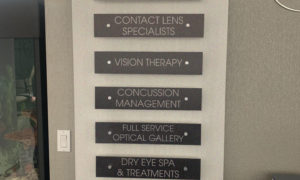
Photo credit: Getty Images
Employment guidelines essential for your practice to follow.
By Stuart Oberman, Esq.
Jan. 3, 2024
In the past 18 months, the Equal Opportunity Employment Commission (EEOC) has taken a more aggressive stance in the enforcement of employees’ rights.
In 2023, The Pregnant Workers Fairness Act (PWFA) was enacted to expand rights for pregnant workers. This particular law is highly complex, and the EEOC has offered guidance into how it will proceed in the interpretation and enforcement of this new law. In addition, the EEOC has expanded its aggressive enforcement of harassment that occurs within the workplace. Recently, the EEOC released its proposed “Enforcement Guidance on Harassment in the Workplace.”
The PWFA’s and the EEOC’s guidance on harassment is extremely complex and a trap for the unaware. Below is an outline summarizing the high points that every practice owner must be aware of.
What You Should Know About the Pregnant Workers Fairness Act
The PWFA is a new law that requires covered employers to provide “reasonable accommodations” to an employee’s known limitations that are related to pregnancy, childbirth, or related medical conditions, unless the accommodation will cause the employer an “undue hardship.”
It should be noted that the PWFA applies to accommodations. Existing EEOC laws make it illegal to fire or otherwise discriminate against an employee on the basis of pregnancy, childbirth or related medical conditions.
The PWFA does not replace federal, state or local laws that are more protective of employees that may be affected by pregnancy, childbirth or related medical conditions. On June 27, 2023, the PWFA went into effect. The EEOC issued a newly proposed version of the PWFA regulations, and the public is able to provide input and offer comments before the regulations become final.
The EEOC started accepting new charges under the PWFA on June 27, 2023. For the PWFA to apply, the matter complained about to the EEOC must have occurred on June 27, 2023, or later. A pregnant worker who needed such an accommodation before June 27, 2023, may, however, have a right to receive an accommodation under another federal or state law.
In some situations, workers affected by pregnancy, childbirth or a related medical condition, may be able to get an accommodation granted under Title VII of the Civil Rights Act of 1964 or the Americans with Disabilities Act (ADA). Therefore, until June 27, 2023, the EEOC continued to accept and process Title VII and/or ADA charges involving a lack of accommodation regarding pregnancy, childbirth or related medical conditions.
After June 27, 2023, the EEOC started analyzing charges regarding accommodations for workers affected by pregnancy, childbirth or related medical conditions under the new PWFA (if the violation occurred after June 27, 2023) and, where applicable, under the ADA and/or Title VII.
Other Articles to Explore
The PWFA prohibits certain action by employers, such as:
- Requiring an employee to accept an accommodation without a discussion about the accommodation between the employee and the employer.
- Denying a job or other employment opportunity to a qualified employee or applicant based on the person’s need for a reasonable accommodation.
- Requiring an employee to take leave if another reasonable accommodation can be provided that would allow the employee to keep working.
- Retaliation against an employee for reporting or opposing unlawful discrimination under the PWFA or participating in a PWFA proceeding (such as an investigation).
- Interfere with any individual’s rights under the PWFA.
EEOC Proposes New Guidance on Harassment
The proposed guidance outlines the standards for harassment and employer liability under the laws enforced by the EEOC: the Age Discrimination in Employment Act of 1967 (ADEA), Titles I and V of the Americans with Disabilities Act of 1990 (ADA), the Equal Pay Act of 1963 (EPA), Sections 501 and 505 of the Rehabilitation Act of 1973, and Title VII of the Civil Rights Act of 1964 (Title VII).
The proposed “Enforcement Guidance on Harassment in the Workplace” is only guidance and will not become law until it is finalized.
The new EEOC proposed guidance explains how to evaluate whether alleged harassment violates EEO laws, and the guidance focuses on the three (3) primary components of a harassment claim:
- Covered bases and causation: Was the conduct based on the individual’s legally protected characteristic under various federal EEO statutes?
- Discrimination with respect to a term, condition, or privilege of employment: Did the harassing conduct result in discrimination with respect to a term, condition or privilege of such employment?
- Liability: Is there a basis for holding the employer liable for the conduct?
The EEOC proposed guidance is complex. Employers should consult with an employment law attorney about all matters related to human resources risk management.
Bottom Line
The PWFA’s and the EEOC’s proposed guidance is exceedingly complex. To avoid an EEOC complaint, which includes potential fines and penalties, you should review and revise your practice’s internal policies and procedures. Ensure that all EEOC guidelines are followed.
 Stuart Oberman, Esq., is the founder and president of Oberman Law Firm in Cumming, Ga. To contact him: stuart@obermanlaw.com.
Stuart Oberman, Esq., is the founder and president of Oberman Law Firm in Cumming, Ga. To contact him: stuart@obermanlaw.com.

























